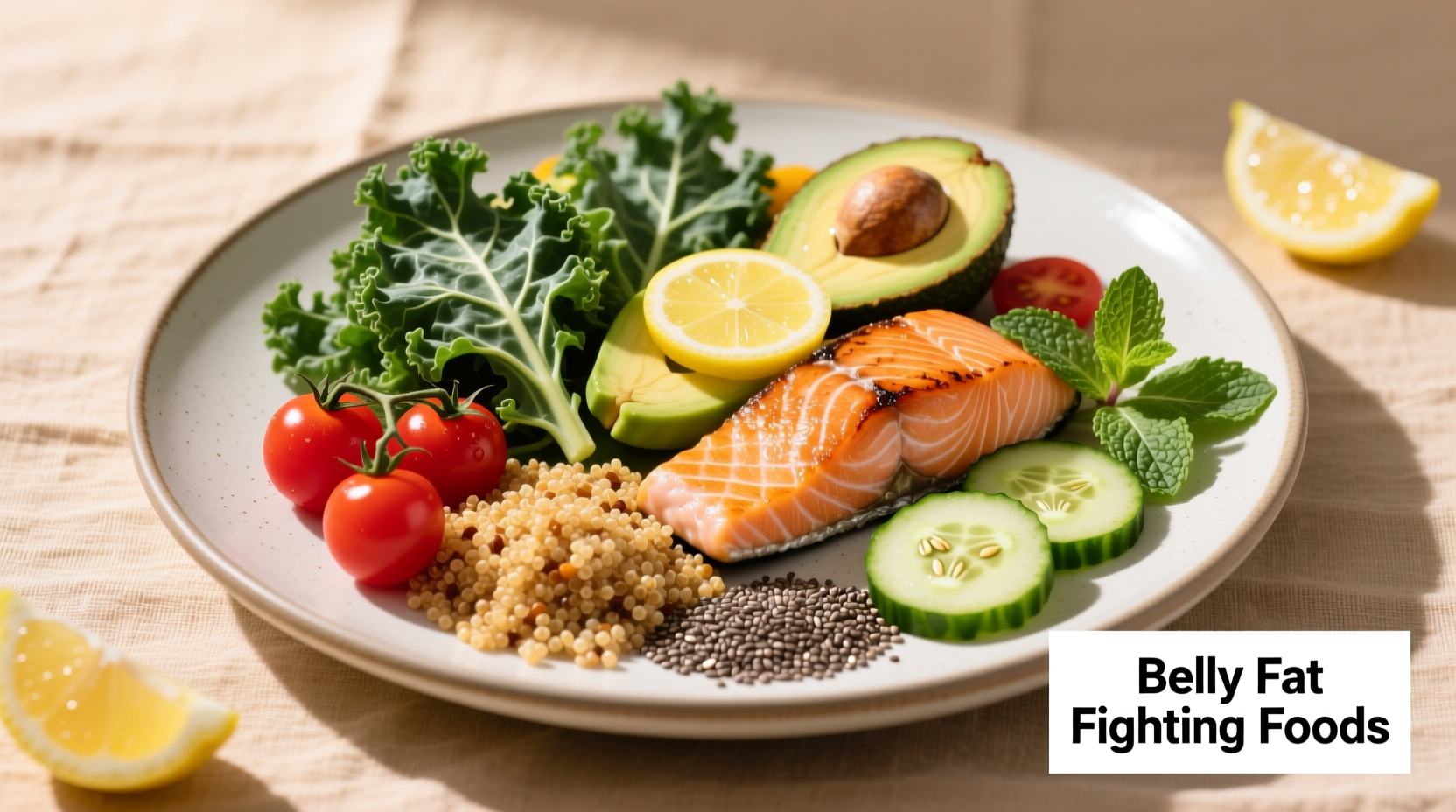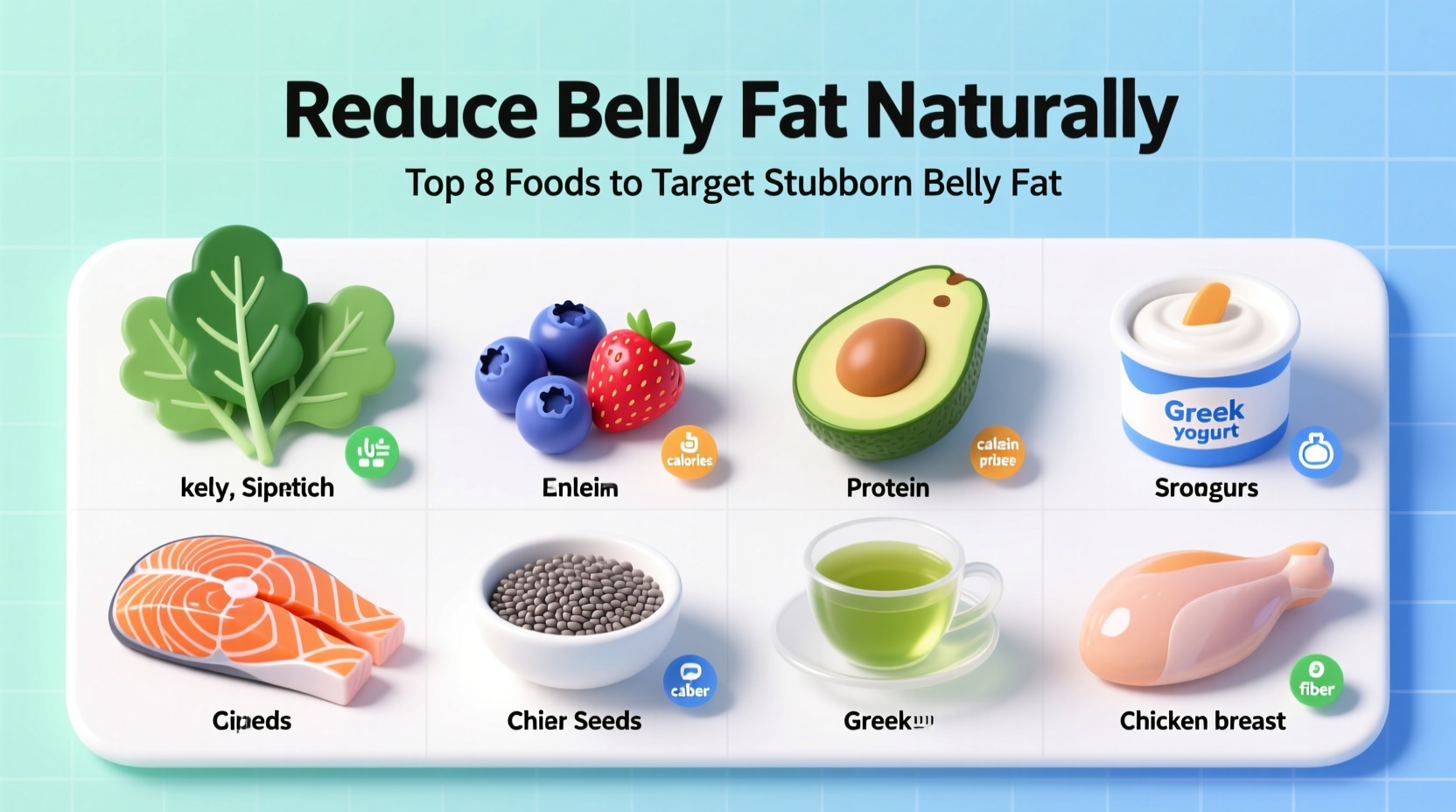Many people struggle with stubborn belly fat despite regular exercise. The truth is, targeted fat loss isn't possible, but certain foods can help reduce overall body fat with a particular impact on abdominal area when incorporated into a healthy eating pattern. Let's explore the science-backed dietary approach that actually works.
Why Belly Fat Requires a Different Approach
Not all fat is created equal. Visceral fat—the type that accumulates around your organs in the abdominal area—behaves differently than subcutaneous fat found elsewhere in the body. This "active" fat releases inflammatory compounds and hormones that increase your risk for heart disease, type 2 diabetes, and other health issues.
Unlike spot reduction exercises that only strengthen underlying muscles, dietary changes affect your entire body composition. The good news? Research from the National Center for Complementary and Integrative Health shows that certain foods can specifically target visceral fat reduction through multiple physiological pathways.
The Science-Backed Belly Fat Fighters
Based on clinical studies published in journals like American Journal of Clinical Nutrition, these food categories deliver measurable results when consistently incorporated into your diet:
Fiber-Rich Vegetables That Fill You Up
Leafy greens and cruciferous vegetables provide volume with minimal calories while delivering essential nutrients. A Harvard School of Public Health study tracking 133,485 adults found that increased vegetable consumption correlated with less abdominal fat gain over time. The magic happens through:
- Slowing digestion to maintain steady blood sugar
- Feeding beneficial gut bacteria that influence fat storage
- Providing bulk that reduces overall calorie intake
Focus on spinach, kale, broccoli, Brussels sprouts, and asparagus—aim for at least 3 cups daily.
Lean Proteins for Satiety and Muscle Preservation
Protein requires more energy to digest than carbs or fats, boosting your metabolism by 15-30% compared to 5-10% for carbs. Research from the Mayo Clinic shows high-protein diets help preserve muscle mass during weight loss, which is crucial since muscle burns more calories at rest.
Include these protein sources:
- Fatty fish (salmon, mackerel) rich in omega-3s that reduce inflammation
- Chicken and turkey breast (skinless)
- Eggs (particularly the yolks which contain metabolism-supporting nutrients)
- Legumes like lentils and black beans

Healthy Fats That Actually Help You Burn Fat
Contrary to outdated diet advice, certain fats are essential for reducing belly fat. Monounsaturated and polyunsaturated fats improve insulin sensitivity and reduce fat storage. A study published in Diabetes Care found that replacing carbohydrates with healthy fats led to greater visceral fat reduction.
Top fat-burning sources:
- Avocados (rich in oleic acid)
- Extra virgin olive oil
- Raw nuts (almonds, walnuts) and seeds (chia, flax)
- Fatty fish (salmon, sardines)
| Food Category | Key Belly Fat Reduction Mechanism | Daily Recommendation |
|---|---|---|
| Leafy Greens | High fiber improves insulin sensitivity | 2-3 cups raw or 1-2 cups cooked |
| Fatty Fish | Omega-3s reduce inflammation markers | 2 servings (3.5oz each) weekly |
| Green Tea | EGCG boosts fat oxidation by 17% | 2-3 cups daily (without sugar) |
| Probiotic Foods | Improved gut microbiome diversity | 1-2 servings daily (yogurt, kefir) |
Implementation Guide: Building Your Belly Fat Reduction Plate
Knowing which foods help is only half the battle. Here's how to structure your meals for maximum impact:
Morning Metabolism Starter
Begin your day with a protein-rich breakfast containing at least 20g of protein. A study in Nutrition Journal found that high-protein breakfasts reduce cravings and late-night snacking. Try:
- Scrambled eggs with spinach and avocado
- Plain Greek yogurt with berries and chia seeds
- Protein smoothie with unsweetened almond milk
Lunch and Dinner Framework
Follow this simple formula for balanced meals that target belly fat:
- 50% non-starchy vegetables (broccoli, asparagus, leafy greens)
- 25% lean protein (chicken, fish, tofu)
- 25% complex carbohydrates (quinoa, sweet potato, beans)
- Small portion of healthy fats (olive oil dressing, avocado slice)
Important Context: What Diet Alone Can't Fix
While food choices significantly impact belly fat reduction, it's crucial to understand these limitations:
- Diet accounts for approximately 70-80% of weight loss success, but sleep quality and stress management significantly impact cortisol levels which affect abdominal fat storage
- Genetics play a role in fat distribution—you may naturally store more fat in your midsection
- Visceral fat responds better to dietary changes than subcutaneous fat, but complete elimination isn't possible or healthy
- Men typically lose belly fat faster than women due to hormonal differences
The Centers for Disease Control and Prevention recommends gradual weight loss of 1-2 pounds per week for sustainable results. Rapid weight loss often leads to muscle loss and metabolic slowdown.
Avoid These Common Belly Fat Reduction Mistakes
Many people unknowingly sabotage their efforts with these counterproductive habits:
- Overdoing "healthy" fats: Nuts and avocados are calorie-dense—measure portions
- Drinking sugar-free beverages: Artificial sweeteners may increase cravings according to research in Obesity
- Skipping meals: This triggers fat-storing mode and reduces metabolic rate
- Focusing only on abdominal exercises: Core workouts strengthen muscles but don't reduce fat in that area
Putting It All Together: Your 7-Day Belly Fat Reduction Plan
Start with this realistic approach that incorporates the most effective foods:
- Week 1: Replace one sugary beverage daily with green tea or water with lemon
- Week 2: Add one serving of leafy greens to both lunch and dinner
- Week 3: Include 20g protein in your breakfast
- Week 4: Substitute refined grains with whole grains (brown rice, quinoa)
This gradual implementation increases long-term adherence. Research shows that people who make small, sustainable changes are three times more likely to maintain their results after one year compared to those attempting drastic overhauls.











 浙公网安备
33010002000092号
浙公网安备
33010002000092号 浙B2-20120091-4
浙B2-20120091-4